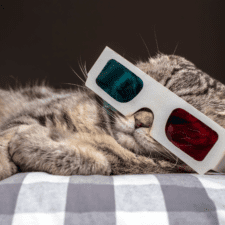July 16th is Feline Leukemia Day! Feline leukemia is one of the most common infectious diseases our feline pals can catch. Kitties that have tested positive may still have many years of purrs, pounces, and cuddles ahead of them. However, they have a very hard time getting adopted. While adopting an FeLV positive cat isn’t going to be right for everyone, it can be a very special and rewarding experience. A local London, ON vet offers a few tips on this below.
Why Adopt Fluffy?
Why would you want to adopt a FeLV positive cat? The same reason you’d want any other cat! They’re cute, lovable, and lots of fun! This is also a wonderful act of kindness, and FeLV kitties have a hard time getting adopted.
Contagion
Of course, the biggest concern with adopting a FeLV positive kitty is the possibility of contraction. If you have another cat, then this isn’t going to be a good idea, unless, of course, your furry friend is already positive.
Diet
A proper diet may go a long way towards keeping Fluffy content. Fluffy will need a good, high-quality canned food, one that is appropriate for her age. Canned food is recommended because it is higher in water content. Your furball may do well on a diet with a lot of white meat, such as chicken. Ask for specific advice.
Safety
We recommend that all kitties be kept indoors. However, this goes double for FeLV positive ones. Not only is Fluffy potentially contagious, she also may not be strong enough to escape potential threats. Better safe than sorry!
Consider Two
If you don’t currently have any other cats, why not adopt two FeLV furballs? Fluffy and Mittens can share many of their belongings, and can keep each other company when you’re out. Of course, this would only be an option if you plan on keeping both—or all—of your feline friends inside.
Care
FeLV-positive kitties do need some extra TLC. You’ll want to keep a close eye on Fluffy, and watch for symptoms that the disease is progressing. These include dull fur, lack of appetite, unusual behavior, and tumors. Your vet can give you more information on what to look for, and how to care for your feline buddy at home.
Do you have questions about FeLV? We are here to help! Contact us, your London, ON animal clinic, today!






